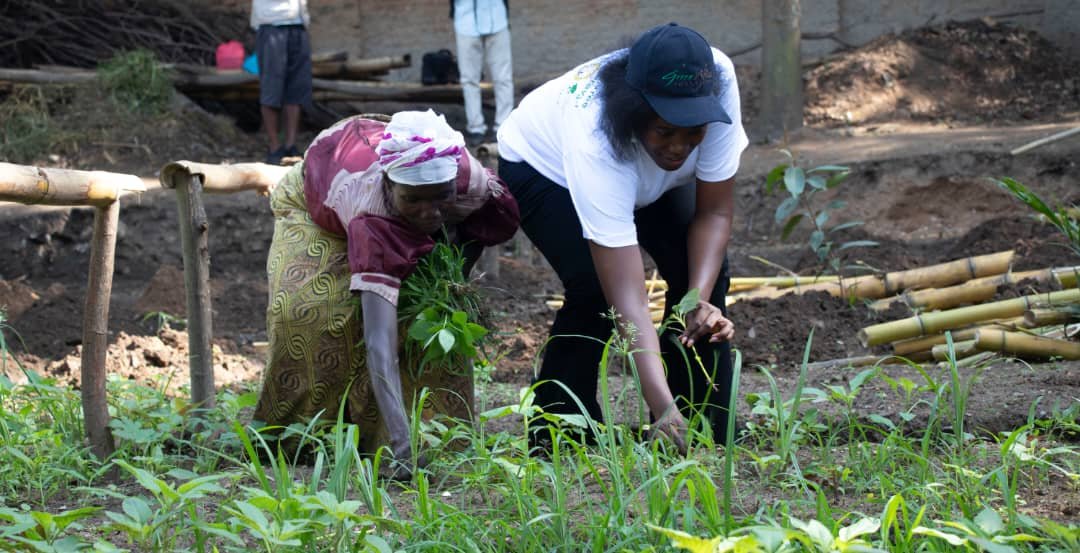Strengthening The Hands That Feed Us
By Natalie Sifuma
There’s an African saying that goes, “home is not where we live; home is where we belong”, and it aptly captures the course of Dianey Mugalizi’s life and work.
Having grown up in a humble farming community, from a young age she knew how fundamental agriculture was for food security, and living under the tender but firm care of farmers helped her recognise the patience and diligence that went into farming – a profession heavily reliant on specific weather conditions.
But the one thing that makes her smile is when she recounts those precious moments from her childhood are the avocados, mangoes and plums that were often in bounty and exceptionally delicious! She vividly remembers how she anticipated fruit seasons and never wasted a moment devouring those she’d get from her parents’ farm.
Today, her understanding of farming is drawn from both firsthand experience and textbook knowledge. She won’t skip a beat in relaying that approximately 40 percent of Kenya’s population is in the agricultural sector, and how crucial women’s roles are in sufficient farm produce (over and above unpredictable changes in weather patterns). It helped that she was adamant in pursuing a career in Environmental Science and Conservation; for her it was about gathering more knowledge in order to support her parents’ and community’s work – a commendable show of love and selflessness.
What came out of this pursuit was more than Dianey expected. For one, it ushered her into the climate and sustainability space, and she began positioning herself as a medium through which environmental conservation could be passed on to farmers in her hometown. Although she had a steady and gradual start into this work, she was also pushing a message that aimed to empower women. With patriarchal roots running deep in her community, she was likely to be dismissed or ignored, but having foresight on this setback enabled her to think and act strategically. She simplified her focus to this: spreading environmental conservation measures to women farmers, enabling them to build resilience in the face of climate change.
Guided by this goal, Dianey got to work. Her immediate discovery was that although women were front and centre of ensuring farm produce was sufficient and were organising trips to markets and supplying to institutions, they had their fair share of limitations. For starters, they weren’t culturally allowed to own land, and those who were able to were few and had an upper hand: they were educated and were in formal employment. The rest — those who made up the majority of the female farmer workforce — had limited education and so were uncomfortably tucked behind the stewardship of men, even if the land they tilled was technically their birthright. It was a puzzling and equally disturbing finding, but it gave Dianey the purpose she needed to be a conduit of systemic change.
Deciding to go down this road was daring if not ambitious. While it gave her an opportunity to give back to the women in her community and visit other agricultural regions in Kenya and East Africa, she was also thrust into the complex dynamics of women’s equal rights to land and property.
The direct relationship between women’s rights to land, economic empowerment, food security and poverty reduction couldn’t have been more clear, and by realising this Dianey also realised that her workload had doubled, if not tripled. Advocacy became an aspect of her work, and although her initial focus was at grassroots level, she garnered the courage and support to champion systemic change within organisations, enabling them to see the crucial role of women in the agricultural sector which is heavily impacted by climate change.
Once the farmers she was working with started reaping the benefits of the environmental conservation knowledge, Dianey knew it was time to explore other aspects of rural lifestyle that were preventing sustainable living. What stuck out like a sore thumb was the sources of energy most households were using. Charcoal stoves for one were common in the majority of kitchens, and because houses in this part of Kenya aren’t all well ventilated, there is a lot of inhalation of carbon monoxide and carbon dioxide, which was further contributing to climate change. Advocating for clean and affordable energy meant Dianey had to partner with organisations working to enable just transition for rural households, and today she continues to advocate for the use of clean, energy saving stoves which use less firewood and are designed in a sustainable way.
Dianey’s continuous dedication to her hometown and to women from rural communities and in agriculture has enabled her to offer her advocacy, capacity building and community education skills to organisations such as Green Africa Foundation in Kenya, and the Major Group for Children and Youth’s Chemical & Waste platform.
Her focus on areas that are pillars of COP28 makes her a crucial voice at this year’s conference, and as an ambassador for SHE Changes Climate, we will continue to support and amplify her work, which is crucial for the transition to an equitable and sustainable future for farmers like those from Dianey’s home, but altogether for people and the planet we all call home.
Dianey (right) and Mrs Dorcas Bukuru demonstrating the effective women land use activities of Bamboo Propagation after a community women land rights meeting at Muha River farm in Burundi
Dianey (far left) facilitating community focused group discussions to get to know the impacts of women land rights.


